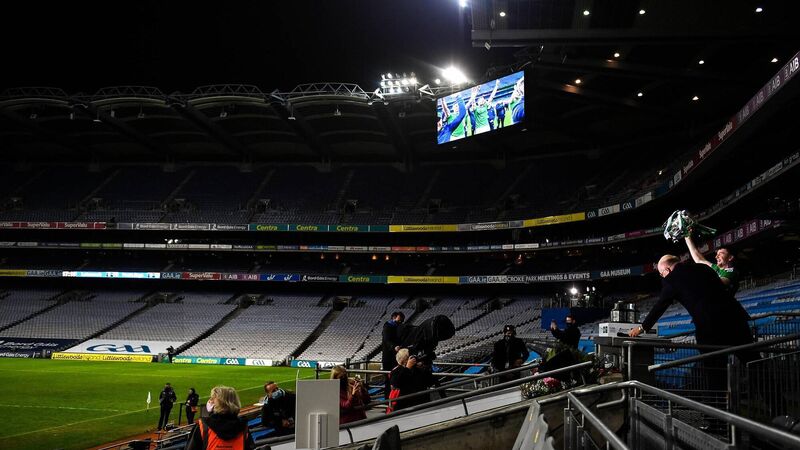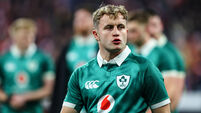Tommy Martin: An absence of energy was the defining experience of sport in 2020

Limerick captain Declan Hannon lifts the Liam MacCarthy Cup in an empty Croke Park. Photo by Brendan Moran/Sportsfile
A passage from Jim McGuinness’s autobiography sits unaccompanied on the back cover of the book’s original hardback edition.








